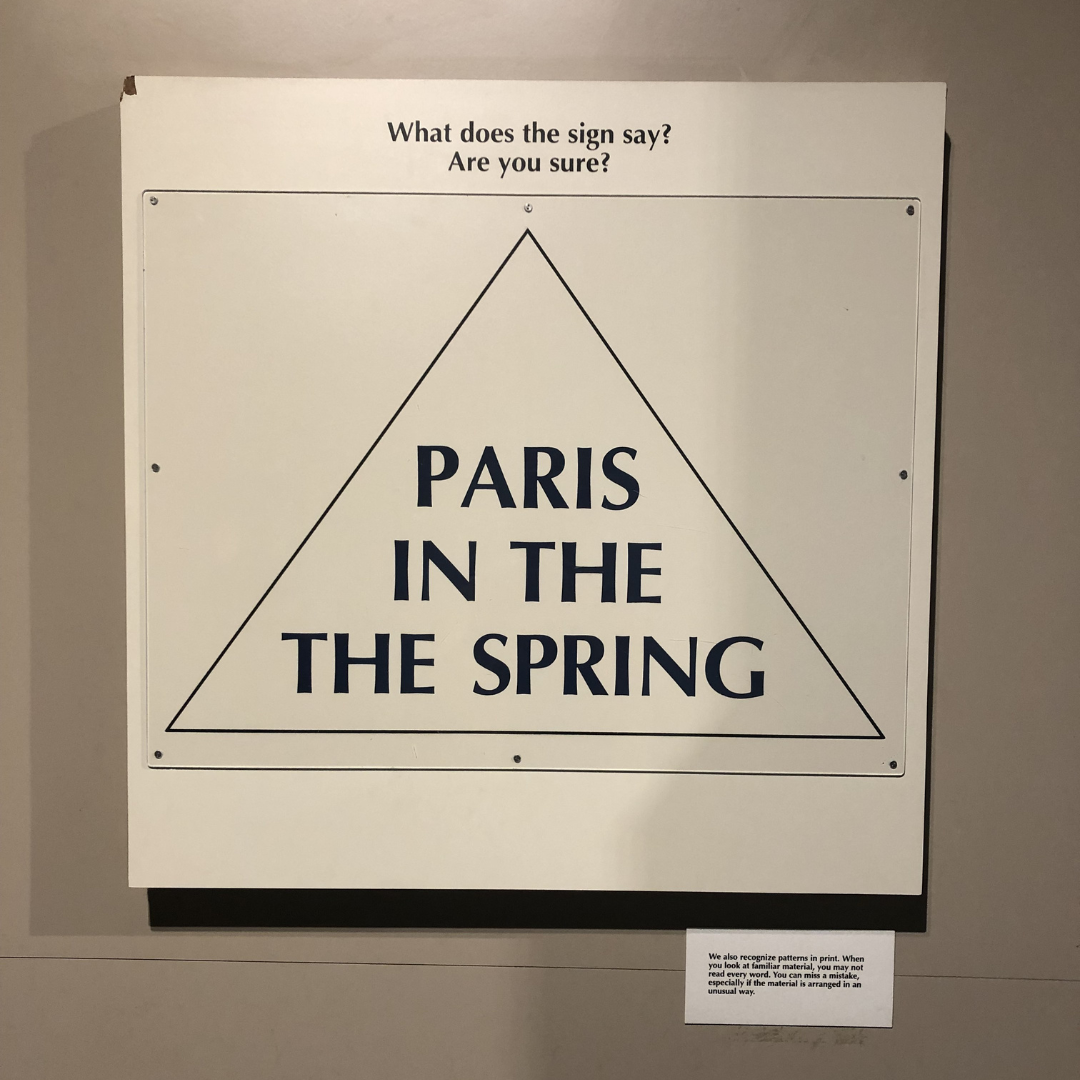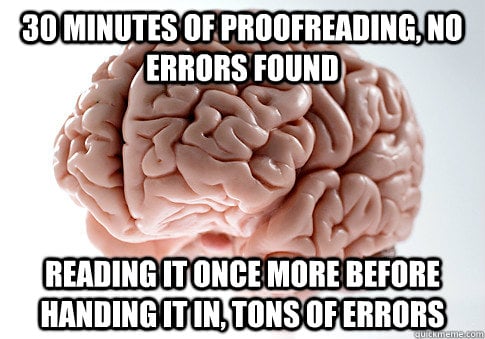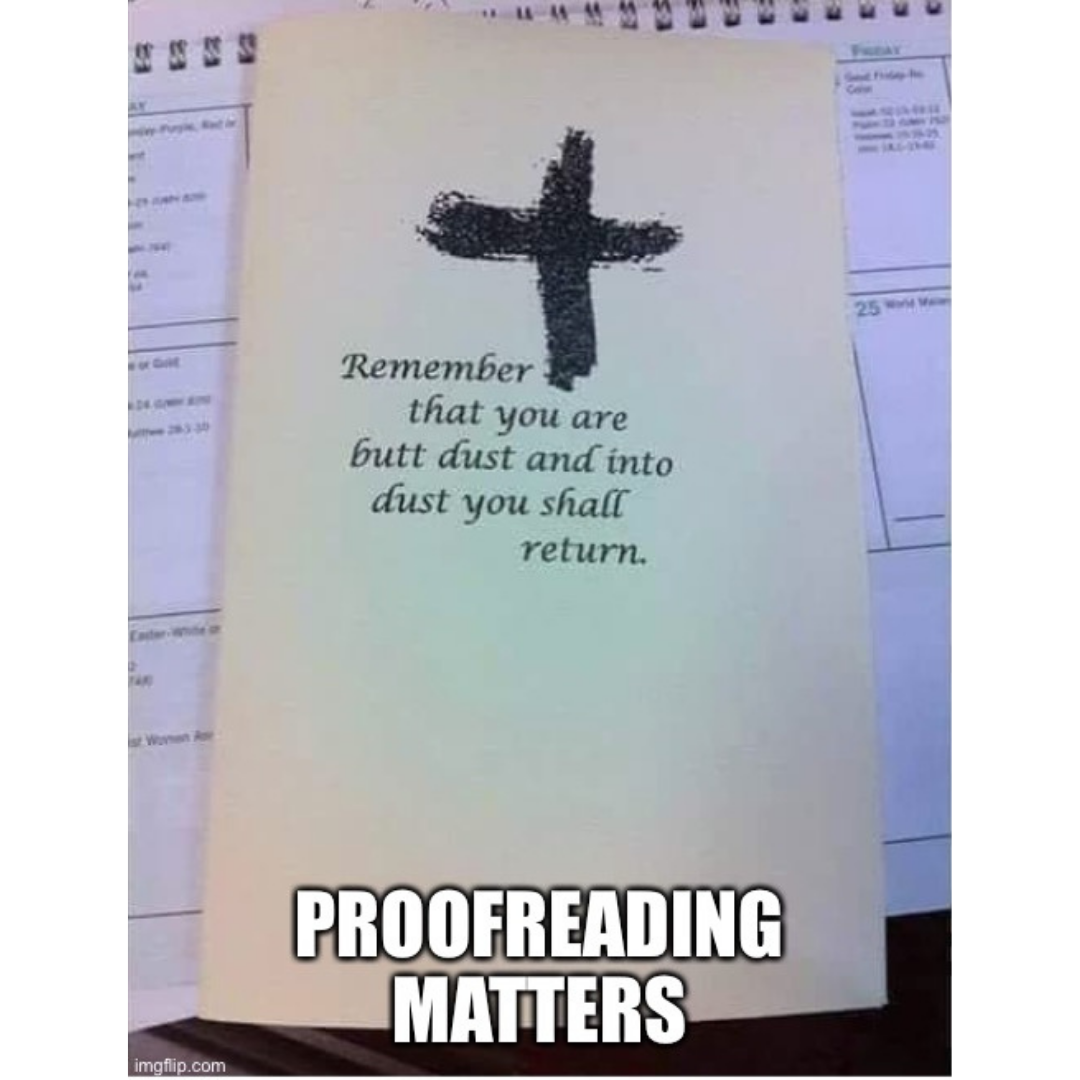How to correct grammar mistakes
“What do you do when you find a mistake in your writing?” I asked ProofreadNOW.com President Phil Jamieson.
“Well, the first thing I do is feel a great sense of shame,” he answered with his characteristic gravity.
I laughed.
He smiled. “It’s not a soul-crushing shame,” he added. “I’m not, you know, suicidal. But I hate making mistakes.”
I laughed more. Then sighed inwardly. I know that cringey feeling. I’ve yelled, “Oh, come on!” more than a few times after sending an email I proofed 17.43 times, only to notice “farter” instead of “father” in the text. Or some other silliness that my brain (and spell-check) refused to acknowledge.
Assuming you’re human, you understand. And if you’re reading this post because you just sent a mass email with the subject line “We apologize for the incontinence during renovations,” you have our compassion.
We can’t give you a time machine or a memory-altering device, but as people who specialize in correcting other people’s grammar (and our own), here are some action steps to take after you commit a grammatical faux pas.




 The internet is amazing and messy. It gives nearly everyone the chance to have a voice, to create, and to showcase their skills, especially writers. For work or for fun, whether you consider yourself a writer or not, if you’ve ever published or shared anything online that you’ve written, you’ve probably wondered whether you should copyright it. Which brings us to the downside: Worldwide access to virtually everything that’s published online is often paired with a shocking amount of plagiarism/virtual theft.
The internet is amazing and messy. It gives nearly everyone the chance to have a voice, to create, and to showcase their skills, especially writers. For work or for fun, whether you consider yourself a writer or not, if you’ve ever published or shared anything online that you’ve written, you’ve probably wondered whether you should copyright it. Which brings us to the downside: Worldwide access to virtually everything that’s published online is often paired with a shocking amount of plagiarism/virtual theft.





